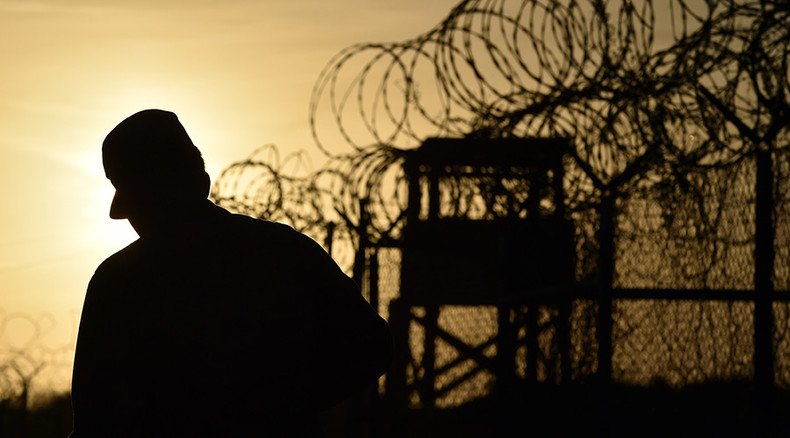US forces snared only 3 out of 116 prisoners at Gitmo

American military forces captured only three out of the 116 prisoners still remaining at the Guantanamo Bay prison complex in Cuba, a new analysis by the Guardian discovered. Many of those left were sold to the US for monetary rewards.
According to the analysis, 68 of the remaining detainees were caught by Pakistani security forces or informants linked to them, while 30 were captured primarily by Afghan warlords.
READ MORE: Obama Gitmo plan moves prison to US, leaves prisoners in limbo – ACLU
The shocking news comes as President Barack Obama’s plan to shutter the complex and either transfer inmates overseas or move them into US prisons continues to face severe criticism from those who want to leave them in Cuba. Senator Kelly Ayotte (R-New Hampshire) has referred to the remaining prisoners as “the worst of the worst,” but critics say the new information shows the basis for their continued detainment rests on the shaky words of those who first captured them.
“The United States was offering very significant bounties – anywhere between $5,000 to sometimes $15,000 per Arab man that was captured in the general vicinity of the Afghan-Pakistani border,” City University of New York professor Ramzi Kassem, who also represents some of the detainees, told RT.
“Most of the men at Guantanamo were not captured by the United States and they were not even captured in Afghanistan.”
Notably, at least 17 of the remaining prisoners were caught by the Pakistani Inter-Services Intelligence agency, an outfit that sponsored the Afghan Taliban and allegedly allowed Osama Bin Laden to remain in Abbottabad before he was eventually killed in a raid by US forces.
Besides the fact that US troops paid Afghan warlords and Pakistanis to turn over combatants in the region of Tora Bora, details concerning the prisoners’ origins raise questions about the motivations of those who captured them, and whether the detainees are really as dangerous as claimed.
READ MORE: US refuses to free ‘near death’ Gitmo hunger striker weighing 33kg
Moreover, US officials themselves barely knew anything about the individuals delivered to them. Retired Air Force colonel Morris Davis told the Guardian that out of the 300 or so detainees first placed at Guantanamo, officials were not sure whether 70 percent had even been correctly identified.
“It didn’t take long to realize that for every detainee that was arguably a KSM-type [Khalid Shaikh Mohammed] there were dozens and dozens more that were of the knucklehead variety like David Hicks or the low-level dupe variety like Salim Hamdan,” Davis said.
#pentagon chief calls for #Gitmo closure under Obama, states oppose detainee transfers
http://t.co/IPzRZ1chnzpic.twitter.com/HOiYjAmtrm
— RT America (@RT_America) August 20, 2015Considering this information, Kassem told RT that calling them “the worst of the worst” is “just empty political rhetoric that is intended to score cheap political points … there’s actually no real connection between that rhetoric and the men at Guantanamo and what their backgrounds are.”
Kassem went on to say that the US was violating both domestic and international law by holding detainees indefinitely and without charge.
“They want to hold people in the context of this so-called ‘war on terror’ indefinitely, but they don’t want to apply the protections of the Geneva Conventions that apply to any war. You really can’t have it both ways as a matter of law,” he said. “If it’s a war, regardless of its nature, there are certain protections that must apply under the Geneva conventions. If it’s not a war, then prisoners have to be charged or released in civilian courts.”
“The only real way to close Guantanamo is to release as many of the prisoners from Cuba directly, including men like my clients,” he concluded. Others should be resettled in other nations as refugees, and the small number of remaining prisoners should be tried in a civilian court, he added.












